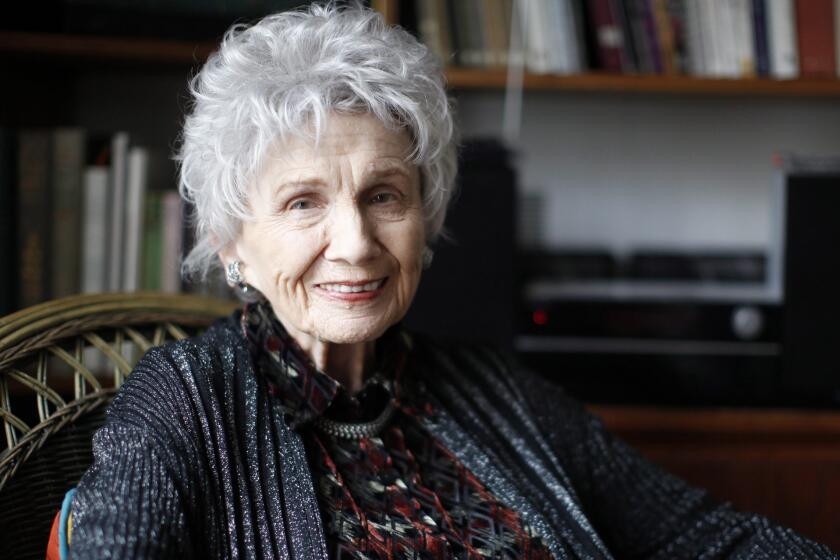Strangeloves in Bloom
It’s a sign of the hawkish times that supporters of war against Iraq are able to get away with labeling antiwar doves as wimps and fools. Indeed, some pro- warriors go further, smearing antiwar Americans as dupes of the enemy.
House Majority Leader Tom DeLay (R-Texas) pronounces some antiwar Democrats guilty of “appeasement” toward Saddam Hussein; the neoconservative Weekly Standard makes the same accusation against the entire State Department as well as selected Republicans. Columnist Mona Charen has gone even further; in a new book titled “Useful Idiots: How Liberals Got It Wrong in the Cold War and Still Blame America First,” she attacks, among others, Jimmy Carter, Al Gore and Madeleine Albright. Charen’s title comes from Soviet leader V.I. Lenin’s phrase referring to those who unwittingly helped the communist cause.
And last week, Council on Foreign Relations fellow Max Boot blasted all antiwar opinion -- not only over the last year but also over the last century -- saying protests slowed or thwarted U.S. victories from the Spanish-American War to Vietnam.
Got that?
On its face, this argument may seem absurd, but its true absurdity is found in the criticism of peace movements.
Opposition to the U.S. occupation of the former Spanish colony of the Philippines allegedly gave false hope to Washington’s enemies, encouraging them to keep fighting. But was it really a good idea for the American military to subdue the Philippines? It took 70,000 U.S. soldiers to crush the insurrectos, a four-year operation that cost 4,234 American lives and caused the deaths of 200,000 Filipinos. One might ask, what was the upside for the U.S.?
And who were the protesters against this American imperialism? They included Mark Twain, philosopher William James, industrialist Andrew Carnegie and union leader Samuel Gompers. Did these people have American blood on their hands? Were they “useful idiots” aiding the Filipinos? Or were they simply preferring peace to war?
The intellectual mission of the Iraq hawks today is to erase bad memories of past conflicts so as to wipe the slate clean for future conflicts. “Liberal views, forged in Vietnam and tempered in Central America and beyond, got the world wrong,” Charen laments. War opponents, she alleges, were politically and ideologically misguided, although it is likely that most simply wanted to prevent more Americans from being killed in a futile quagmire. Fortunately for the pro-warriors, after 30 years the memories of the Vietnam debacle and its terrible toll have grown dim.
Yet even as the U.S. was losing the hot war in Vietnam, it was winning the Cold War against the Soviet Union. And that’s a victory the hawks don’t like to talk about anymore. Why not? Because the favored strategy of the ultrahawks -- the forcible “rollback” of the Soviet Union -- was not adopted. Instead, presidents from Truman to the first Bush followed a tough-minded strategy of armed containment. Acting in conjunction with allies, in accordance with international law, the U.S. waited out the Soviet Union until it collapsed of its own dead weight.
Today, the Iraq hawks, in their increasingly Strangelovian fashion, don’t want to repeat the Cold War patience. They don’t want to let the inspections process chip away at Hussein’s arsenal; they don’t want the dictator to be lured into exile. They want a hot war, and they want it now. To get it, they are eager to trash the mechanisms of dispute resolution that have been built up over the decades: the United Nations, the North Atlantic Treaty Organization and, more recently, the International Criminal Court.
Polls show that most Americans want to work cooperatively through international institutions to disarm Iraq. In other words, they don’t want a rush to war.
But that’s exactly what the hawks do want. And so they must squawk loudly, to drown out not only the idea of democratic protest but also the very idea of peace.
Sign up for our Book Club newsletter
Get the latest news, events and more from the Los Angeles Times Book Club, and help us get L.A. reading and talking.
You may occasionally receive promotional content from the Los Angeles Times.



